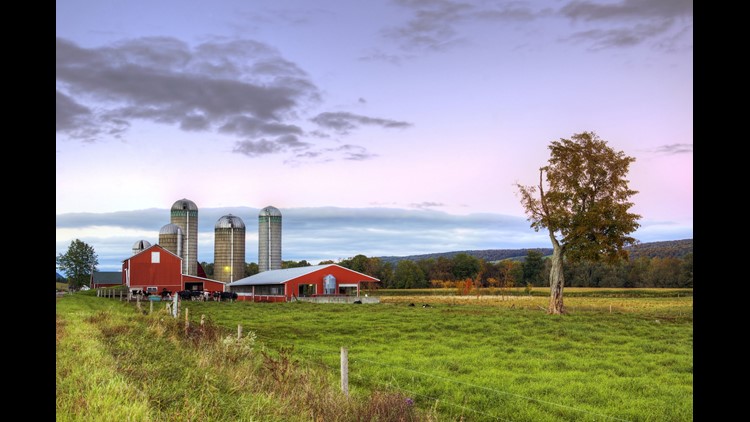Harrisburg, PA – Continuing efforts to reduce annual loading of nitrogen, phosphorous and sediment entering the Chesapeake Bay, the Pennsylvania Department of Environmental Protection (DEP) has notified a selection of farmers in the bay watershed that officials will be visiting farms soon to verify and review the operation’s manure management and agricultural erosion and sediment control plans.
“It is important that we identify good practices and become aware of gaps in having these mandated plans,” said Acting DEP Secretary Patrick McDonnell. “These visits will help us document compliance with state requirements, and direct resources where they are needed most.”
Initially, visits will be in high-priority areas of the watershed, to reduce nitrogen, phosphorus and sediment runoff as quickly as possible. The value, McDonnell said, is as important nearby as it is further downstream. “Farmers’ plans control erosion and manage manure, which directly helps improve local water quality,” he said.
Approximately 2,000 of the 33,000 Pennsylvania farmers in the bay watershed were selected at random for notification by letter this week.
The letter notes that DEP is responsible for ensuring that the nutrient and sediment loads are reduced enough to meet federally mandated allocations by 2025, and that the U.S. Environmental Protection Agency (EPA) has determined that the urban stormwater and agricultural sectors are not making sufficient progress toward achieving these allocations.
The visits will allow DEP and County Conservation District staff to ensure compliance with basic requirements to have and implement written plans to:
- Properly handle, store and land-apply animal manure and agricultural process wastewater on the farm consistent with the nutrient needs of growing crops (commonly referred to as a manure management plan); and
- Properly manage risks of erosion and runoff from agricultural plowing or tilling operations and animal heavy use areas (commonly referred to as an agricultural erosion and sediment control plan, or Ag E&S Plan).
For more information, please visit DEP’s Chesapeake Bay website.



